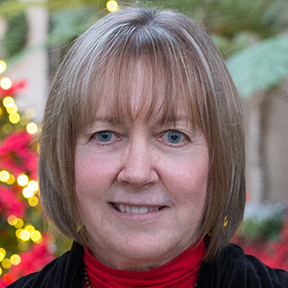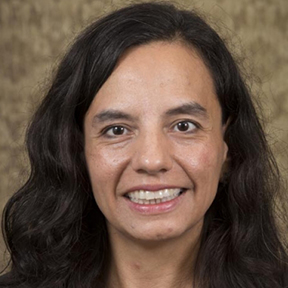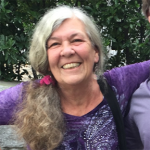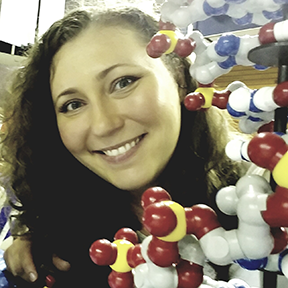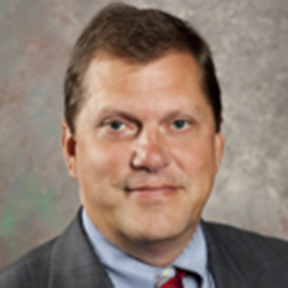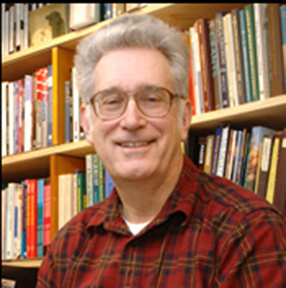PBL Classic.
On this page: Facilitators | Acknowledgments
Facilitators
Deborah Allen, Biological Sciences
Deborah Allen is a professor of biological sciences at the University of Delaware (UD), and former program officer in the National Science Foundation’s Division of Undergraduate Education. In the mid-1990s, Allen joined a multidisciplinary team of educators to design, implement, and assess problem-based learning (PBL) curricula for introductory courses, including interdisciplinary ones for pre-service teachers. Allen is a founding member of the editorial board of CBE-Life Sciences Education and has authored feature articles for the journal since 2002. She is co-author/editor of several books on PBL and related instructional strategies, and is an advisor to a number of PBL-related federally funded projects. Allen is a recipient of UD’s Excellence in Teaching Award and of the American Society for Cell Biology’s 2013 Bruce Alberts Award for Excellence in Science Education, and has served as a Fulbright Senior Specialist in Péru to co-develop a PBL program for middle school environmental science.
Phil Duker, Music
Philip Duker, Associate Professor, Music Theory joined the faculty at the University of Delaware in 2009. He is a former fellow at the University of Michigan’s Institute for the Humanities, an experience that broadened his interdisciplinary research interests. Many of his research interests lie at the intersection between music and the humanities, including instrumental theatre and the visual/bodily aspects of performance, rhythm and temporality, philosophy and aesthetics, critical theory and the relationship between performance and analysis.
Jackie Fajardo, Chemistry & Biochemistry
Jacqueline L. Fajardo is an Assistant Professor in the Department of Chemistry & Biochemistry at the University of Delaware. Prior to this, she taught courses in general chemistry, scientific writing, and principles of scientific inquiry. Dr. Fajardo also collaborated with high school teachers on their implementation of active-learning pedagogies within their own classrooms. Currently, her primary teaching responsibilities include the first year integrated general chemistry course sequence at UD. She also serves as Co-Director of the local chapter of the Center for the Integration of Teaching, Research, and Learning (CIRTL), a future faculty training network, and is co-author on a number of national American Chemical Society standardized examinations. Dr. Fajardo has a profound appreciation for the promotion of higher order thinking skills in both small and large classroom settings and is eager to pursue approaches that facilitate student acquisition of these skills.
Kevin Guidry, Center for Teaching and Assessment of Learning
Kevin R. Guidry is Associate Director of Educational Assessment at the UD Center for Teaching and Assessment of Learning. He works with faculty on exploring new pedagogies and improving existing teaching practices to enhance student learning. Guidry specializes in assessment of student learning and survey methodology having worked on teaching, learning, and assessment research and practice at levels ranging from individual courses to projects spanning hundreds of colleges and universities.
Paul Hyde, IT Academic Technology Services
Paul Hyde has helped lead several initiatives involving teaching and technology, including the formation of UD’s first teaching and technology support center, the Faculty Institute program, the Student Multimedia Design Center, and Faculty Commons. He has taught for the School of Education, the Department of Art, and Professional and Continuing Studies and received UD’s Award for Excellence in Teaching Adult Students. He presents widely on active learning and on learning space design.
Pat Marsteller, Biology, Emory University
I am currently a Professor of Practice in Biology and a half-time Associate Dean at Emory University. I love teaching at all levels. With my dean hat, I help faculty find funding for undergraduate research and help faculty with curriculum grants. I believe we must teach science to prospective scientists and non-science concentrators in ways that foster critical evaluation of both evidence and potential consequences. Read more on Pat’s web page for PBL Classic.
Adebanjo Oriade, Physics and Astronomy | Dupont Interdisciplinary Science Learning Laboratories
As a preceptor in the ISLL, Professor Oriade has contributed to the curricular redesign of an undergraduate physical science course for nonscience majors, SCEN 101. Under Dr. Oriade’s guidance, the high-tech learning experience of SCEN 101 students is enriched with dynamic group interactions that augment student skills in prediction, data acquisition and analysis, and scientific communication through regular electronic poster conferences. Professor Oriade utilizes his training in computational condensed matter physics to engage in the challenge of designing, implementing, and assessing learning tools for science educational purposes. These tools include project-specific rubrics that serve the needs of both students and graduate teaching assistants, design of group tasks, and development of nine new laboratory exercises grounded in the 5Es instructional model. He has also, in collaboration with others in ISLL, developed and implemented Origami Science FabLab/Makerspace (SCEN115). This unique course is designed for nonscience majors and employs Origami and paper sculpture manipulatives that enhance the active learning process of concepts rooted in science, art, and mathematics.
Kate O’Toole, Biology, Emory University
The biological world is amazing and learning about it should be interesting, and fun, and accessible to everyone. As an undergraduate biology lecturer, I strive to establish a student-centered learning environment in order to reach people with different learning preferences and different kinds of minds. To serve this goal I am constantly developing creative lessons using case studies based on current research and inquiry driven activities to guide students through their discovery of new content. Assessments are designed to engage students in critical thinking and foster the written and verbal scientific communication skills that are essential in a successful citizen scientist. My own research training has focused on understanding the role of transmembrane proteins in cellular functions, in particular, how ion channels mediate neurotransmission in normal and disease states of the adult nervous system. But my ultimate passion has always been science education. After completing my Ph.D., I pursued a nontraditional postdoctoral fellowship at Tufts University in Boston, MA that allowed me to develop my skills as a researcher, a mentor, and an educator. Science doesn’t just happen in the classroom or in the laboratory. I want my students to be able to transfer the knowledge and skills that are learned to the rest of their daily lives and future careers. My strong research background facilitates my teaching style which uses authentic inquiry to focus on skills along with an understanding of biological processes.
Sohee Park, Ph.D. Candidate – Literacy Education School of Education, University of Delaware
Sohee Park is a PhD Candidate in Education specializing in Literacy Education at the University of Delaware. She is currently working as a graduate assistant for the UD chapter of the Center for the Integration of Research, Teaching, and Learning (UD-CIRTL). Her research interests center on multimodal literacy practices in digital environments.
Mark Serva, Accounting & MIS
Mark A. Serva is an associate professor of management information systems at the University of Delaware. His research focuses are trust in electronic commerce and latent growth modeling. He is the former director for the Institute for Transforming Undergraduate Education (ITUE) at the University of Delaware, a leading advocate for PBL and other student-centered pedagogies. He is the current program director for the global enterprise technology (GET) program, which places students in extended internships in area companies. The program allows students to make significant progress toward graduation, while also defraying the costs of higher education. The program has placed 100% of its students since its inception in 2010. Dr. Serva has also worked as an educational consultant for over ten years, conducting PBL workshops around the United States and the world for UD and Harvard University.
George Watson, Dean, College of Arts & Sciences
George Watson is the founding director of the Institute for Transforming Undergraduate Education, created at UD in 1997 with an NSF Institution-Wide Reform grant to promote transformation of undergraduate education through faculty development and course design. In 2001, Watson and the ITUE team launched the PBL Clearinghouse. In 2004, he co-founded the Pan-American Network for Problem-Based Learning. His work on engagement of students in their learning and transformation of undergraduate curricula has taken him to 20 countries for work with institutions of higher education and more than 30 institutions across the United States. Watson’s two most recent course developments were a science and technology literacy course for non-science majors and an introductory electrical engineering course for sophomore mechanical engineering majors. His commitment to undergraduate education has been recognized with several teaching awards, including Outstanding Teacher in the College of Arts and Sciences in 2000 and Delaware Professor of the Year in 1998. Since 2010, Watson has served as Dean of the College of Arts & Sciences at the University of Delaware.
Hal White, Chemistry & Biochemistry
Hal White joined the University of Delaware Department of Chemistry and Biochemistry in 1971. Between 1994 and 1998, he served as Principal Investigator on the first NSF/DUE grant on Problem-Based Learning (PBL) to the University of Delaware and was involved with subsequent NSF, FIPSE, and Pew Charitable Trusts grants for PBL. Currently he is an associate editor for Biochemistry and Molecular Biology Education where he writes commentaries on PBL. Hal has received numerous teaching awards including the 2011 Howard Barrows award for exceptional teaching from McMaster University, the 2013 CASE-Carnegie Foundation Delaware Professor of the Year, and the 2014 American Society for Biochemistry and Molecular Biology’s Award for Exemplary Contributions to Education.
Acknowledgements
Sue Groh Chemistry & Biochemistry
Additional facilitators and acknowledgements are still being added to the program.

